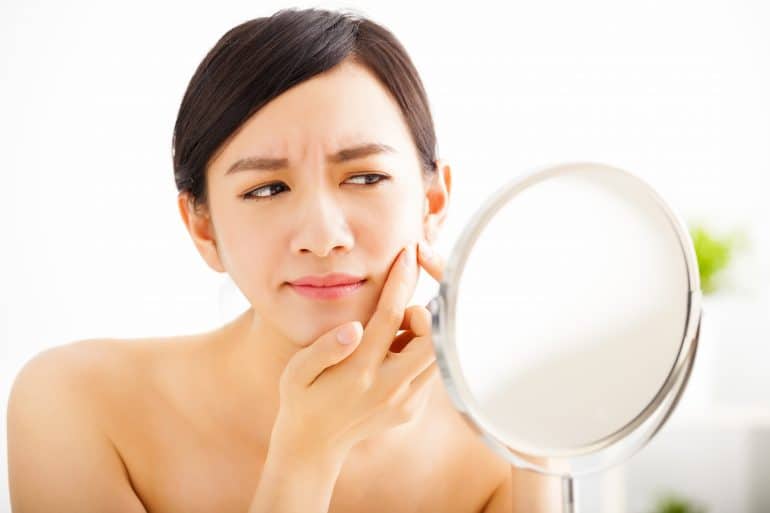Beauty Misconceptions: Let’s Talk Adult Acne

Article By: Lynn Yang on https://weekender.com.sg/w/style/beauty-misconceptions-lets-talk-adult-acne/
In this series of Beauty Misconceptions, we speak to the experts for their take on trending beauty topics and issues.
We tackled oral supplements in our first column, and now, we’re shining the spotlight on adult acne.
Experts Dr Ram Nath, Medical Director at The Wellness Clinic; Dr Lum Yang Xi, Medical Doctor of IDS Clinic; and Dr Kevin Chua, Medical Director of Drs Chua & Partners Clinic answer our burning questions.
1. How should we deal with an acne outbreak?
Don’t squeeze your pimples because it will increase blood flow to the face, which will then encourage more oil to be produced. Plus, avoid overzealously buying anti-acne products off the shelves as some of these products can be very harsh on the skin and can even cause adverse reactions like excessive dryness.
2. Should we squeeze the pimples ourselves?
As mentioned, don’t squeeze them! Resist the temptation of picking or squeezing your own pimples as it is a big no-no. If done incorrectly and if pus is not extracted properly, the pus may be forced deeper into the oil gland, causing damage to the surrounding skin and resulting in more blemishes and scarring.
3. What if my pimple accidentally bursts? What should I do?
Burst pimples should be treated with care. Gently cleanse the area and pat it dry with a clean cotton wool, before applying an antiseptic ointment.
The ointment can help the skin heal faster and protect it from infection. But whatever you do, avoid touching it with your hands.
4. What kind of products should I use to relieve acne?
It’s always good to use benzoyl peroxide or retinoid cream. The two creams mentioned will have to be prescribed by a doctor.
Off the shelves, you can also try to use products with probiotics. Probiotics are a sort of good bacteria, that when applied to the problem skin, can help to balance the bacterial load.
5. What should I do with my unsightly acne scars?
Mild acne scars and blemishes often just need time to heal. As long as new outbreaks are prevented, existing marks will fade with the help of lightening creams.
Acne blemishes like brown pigments left behind from the acne can be treated with topical lighteners like azelaic acid. Azelaic acid is good for reducing the blemishes and also the active lesions.
6. How long will it take to get rid of acne scars?
Mild scars often heal within a few weeks, but it can take six months or more to remove severe acne scars. More severe acne can be treated with treatments such as the PicoWay pigment laser.
This induces Light Induced Optical Breakdown (LIOB) under the skin, allowing for healing, rejuvenation and scar resurfacing without a long downtime. Two to four treatments are recommended with a gap of four weeks between each treatment.


